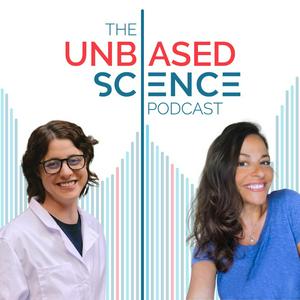To kick off season six of Unbiased Science, Dr. Jessica Steier and Dr. Sarah Scheinman welcome Dr. Matthew Facciani to explore the critical intersection of public health, misinformation, and artificial intelligence. The scientists examine how AI chatbots and other technologies are reshaping the landscape of health information, both positively and negatively. They discuss the growing challenges of distinguishing between misinformation and disinformation in digital spaces, particularly as these relate to public health decision-making. Throughout the conversation, the experts emphasize the vital importance of media literacy and community engagement as tools for combating false information. The episode highlights both the challenges and opportunities presented by technological advances in health communication, offering listeners insights into navigating an increasingly complex information environment.
Video available on YouTube: https://youtu.be/_YjX1oz--cI
Get your copy of Dr. Facciani's book, Misguided: Where Misinformation Starts, How It Spreads, and What to Do About It on Amazon here: https://amzn.to/42b9TRk
(00:00) Intro & Welcome Back!
(03:39) Introducing Dr. Matthew Facciani
(06:28) Public Health News Briefing
(11:01) The Impact of Misinformation
(17:11) Understanding Misinformation vs. Disinformation
(21:59) Combating Misinformation: Strategies for Science Communicators
(29:55) Finding Hope in Public Health
https://matthewfacciani.substack.com/podcast
https://www.nytimes.com/interactive/2025/08/19/opinion/vaccines-autism-evidence.html?unlocked_article_code=1.fU8.9sZk.NROYXhTXCBeG&smid=url-share
https://theunbiasedscipod.substack.com/p/how-a-government-autism-study-could
-----------------------------------------------------------------------------------------------------------------------
Interested in advertising with us? Please reach out to
[email protected], with “Unbiased Science” in the subject line.
PLEASE NOTE: The discussion and information provided in this podcast are for general educational, scientific, and informational purposes only and are not intended as, and should not be treated as, medical or other professional advice for any particular individual or individuals. Every person and medical issue is different, and diagnosis and treatment requires consideration of specific facts often unique to the individual. As such, the information contained in this podcast should not be used as a substitute for consultation with and/or treatment by a doctor or other medical professional. If you are experiencing any medical issue or have any medical concern, you should consult with a doctor or other medical professional.
Further, due to the inherent limitations of a podcast such as this as well as ongoing scientific developments, we do not guarantee the completeness or accuracy of the information or analysis provided in this podcast, although, of course we always endeavor to provide comprehensive information and analysis. In no event may Unbiased Science or any of the participants in this podcast be held liable to the listener or anyone else for any decision allegedly made or action allegedly taken or not taken allegedly in reliance on the discussion or information in this podcast or for any damages allegedly resulting from such reliance. The information provided herein do not represent the views of our employers.
Learn more about your ad choices. Visit megaphone.fm/adchoices


